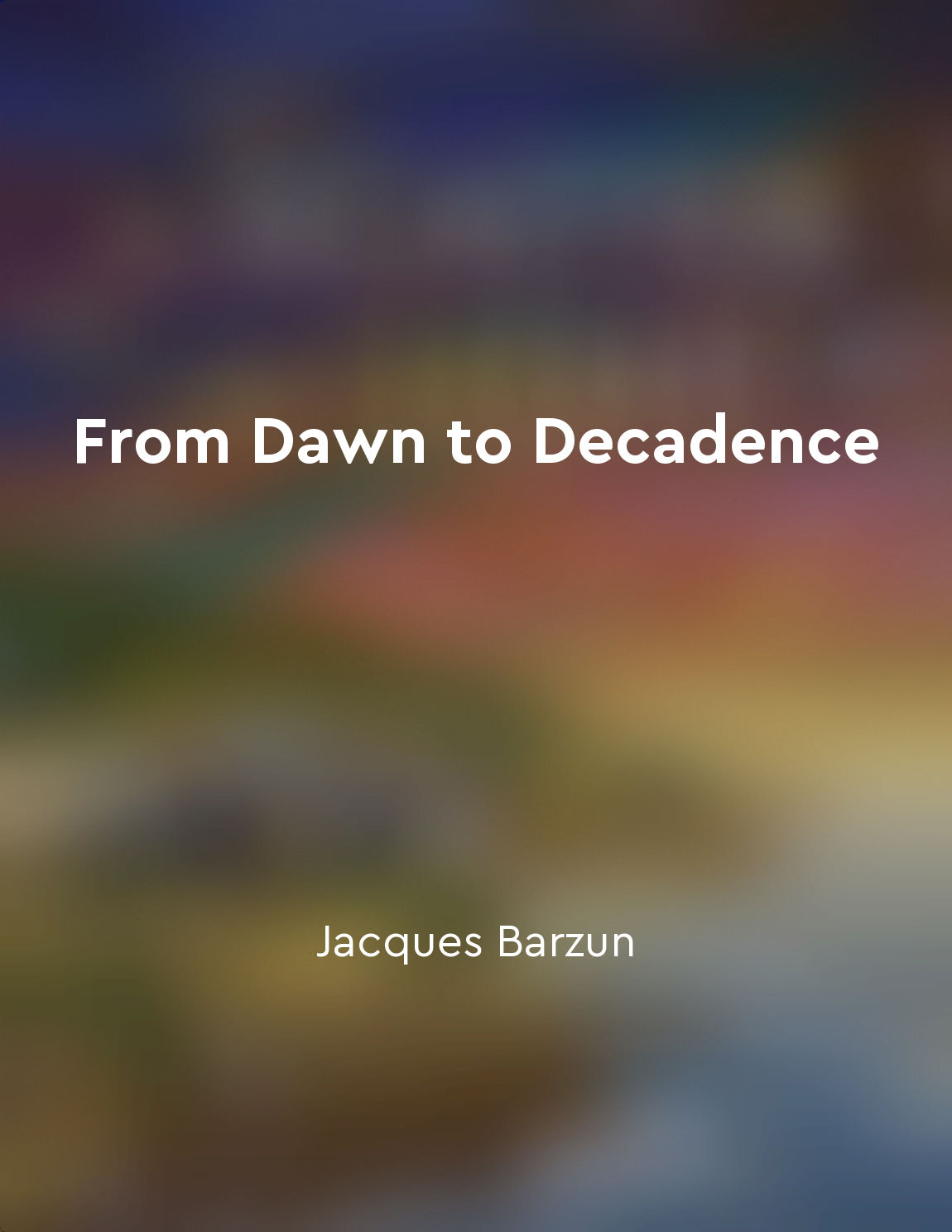The rise of modernism from "summary" of From Dawn to Decadence by Jacques Barzun
The rise of modernism in the late 19th and early 20th centuries marked a significant departure from the traditional norms and values that had defined European culture for centuries. This movement was characterized by a rejection of the past and a embrace of new ideas, technologies, and ways of thinking. Modernists sought to break free from the constraints of tradition and explore new forms of expression in art, literature, music, and philosophy. One of the key features of modernism was its emphasis on individualism and subjectivity. Artists and writers of this period were less concerned with depicting objective reality than with capturing their own unique perspectives and experiences. This shift towards the subjective was reflected in the fragmented, non-linear narratives of modernist literature, the abstract and experimental techniques of modernist art, and the dissonant and atonal compositions of modernist music. Another defining characteristic of modernism was its rejection of the past in favor of the future. Modernists believed that the old ways of thinking and creating had become obsolete in the rapidly changing world of the 20th century, and that it was necessary to embrace innovation and progress in order to stay relevant. This forward-looking attitude led to a rejection of traditional forms and conventions in favor of new and experimental approaches. The rise of modernism also coincided with a period of rapid industrialization, urbanization, and globalization, which brought about profound social, political, and economic changes. These upheavals created a sense of dislocation and alienation among many people, which was reflected in the themes of isolation, disillusionment, and existential angst that permeated much of modernist literature and art.- The rise of modernism represented a radical break from the past and a bold embrace of the new. It was a period of intense creativity, innovation, and experimentation that challenged existing norms and conventions and paved the way for the cultural transformations of the 20th century.
Similar Posts

The role of religion in shaping history
Religion has played a significant role in shaping the course of history. The beliefs, practices, and institutions of various re...
The decline is a result of cultural exhaustion
The decline of a civilization is not simply a matter of external factors such as wars or economic crises. It is, fundamentally,...

The rise of Western civilization
The emergence of Western civilization can be traced back to ancient Greece, where the foundations of democracy, philosophy, and...
The appreciation of art requires an understanding of its context
One cannot truly appreciate art without delving into the context in which it was created. The context of a piece of art encompa...
The war serves as a cautionary tale for future generations
The Great War was a catastrophic event that resulted in the loss of millions of lives and caused immense suffering on a global ...

